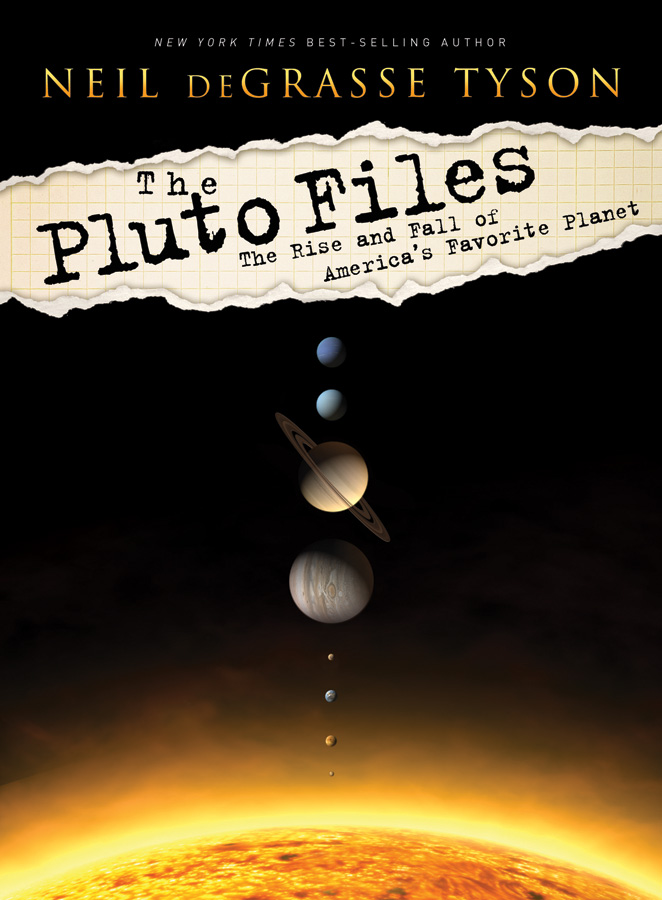Preface: The Pluto Files
From The Pluto Files
Gathered here in one place is a record of Pluto’s rise and fall from planethood, given by way of media accounts, public forums, cartoons, and letters I received from disgruntled school children, their teachers, strongly opinionated adults, and colleagues.

In February 2000, the American Museum of Natural History opened its $230-million Frederic Phinneas and Sandra Priest Rose Center for Earth and Space, containing the rebuilt Hayden Planetarium on the corner of 81st Street and Central Park West in New York City. The newly conceived exhibits treated the solar system in a way that was without precedent for public institutions, even though murmurs had already begun in the planetary science community that something needed to be done about Pluto’s classification in the solar system.
The exhibit models, their accompanying text, and the overall layout of the Rose Center organized the principal contents of the solar system by objects of like properties, rather than as enumerations of planets and their moons. This decision landed Pluto among the growing number of icy objects found in the outer solar system, and left it unmentioned and out of view of our models for the rocky, terrestrial objects (Mercury, Venus, Earth, and Mars) and the gas giants (Jupiter, Saturn, Uranus, and Neptune). By this organization, we practically abandoned the concept of planet altogether.
This decision represented the consensus of the science committee for the Rose Center’s design and construction, of which I served as head. While the accountability and originality of our pedagogical approach to the subject lies equally among us on the committee, as director of the Hayden Planetarium I became the most visible exponent of this decision when, a full year after the Rose Center opened to the public, the New York Times broke a page-one news story that we had demoted
Pluto from its ranks of planethood. I was thenceforth branded a public enemy of Pluto lovers the world over.
This distinction prevailed until August 2006, when the International Astronomical Union (IAU), prompted by pressure from the professional community of planetary scientists as well as from the general public, brought Pluto’s planethood to a vote at a triennial General Assembly in Prague, Czech Republic. The result? Pluto was formally downgraded from “Planet” to “Dwarf Planet,” thereby helping to diffuse the negative attention that I, and the Rose Center, had been receiving for six years running.
It’s one thing for a single institution to re-examine Pluto’s standing in the solar system, but it’s quite another for an international organization of astronomers to do so. When the IAU voting results were made public, a media-frenzy followed, temporarily displacing news stories on terrorism, the Iraq War, genocide in Darfur, and global warming.
The Pluto Files chronicles and documents Pluto’s remarkable grip on the hearts and minds of the public, the professionals, and the press.

